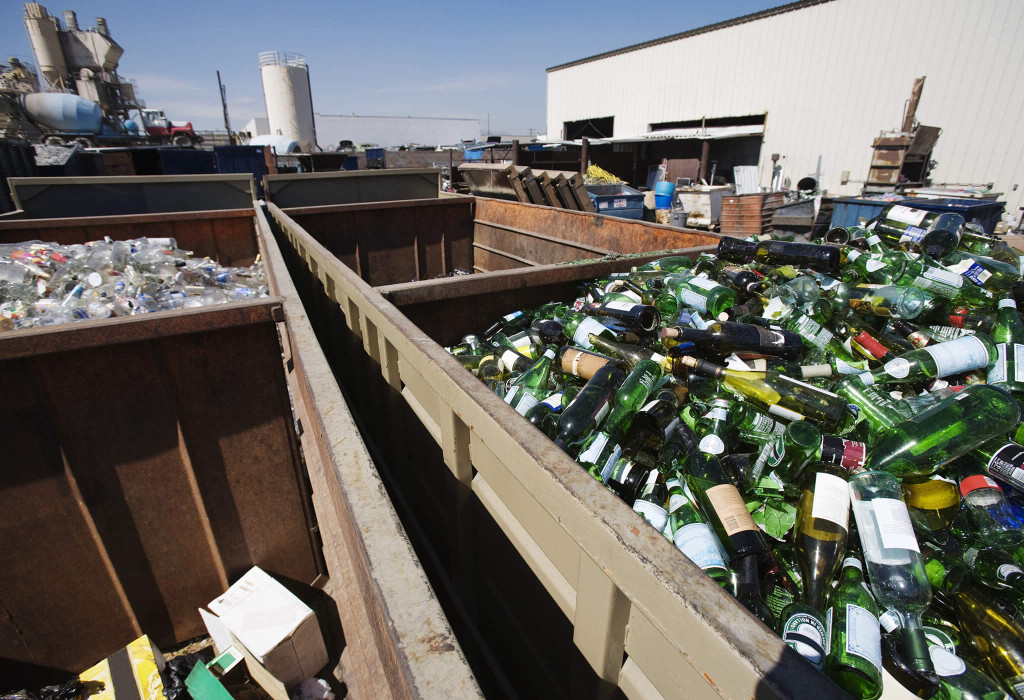
Recycling Center Property Damage Claims
If your recycling center is damaged or destroyed, it not only means stalled operations and a loss of business, but also the mitigation of hazardous and raw materials and finding a safe way to get things back up and running. You do not need the added stress of handling the insurance claim. Since 1946, our licensed public adjusters have lifted the burden of managing insurance claims on your own. We evaluate and document not only the physical damage to your property, but also the income lost from business interruption.
...The fire was extremely disruptive to our business. It severely damaged much of our complicated equipment, destroyed much of our inventory and interrupted the start up of our major contract…Your team was on site and was totally devoted to our cause from the beginning. We are a very small organization and had neither the manpower nor the expertise necessary to properly assess and value the damage. By working with you we identified losses that we would have missed. Further, our bank and our customer were both impressed that we reached out to professionals to assist in resolving out claim. You kept us informed and kept your entire team fully engaged. Our initial concern was that we were too small to be of interest to you. You treated our loss in the same manner as you would have treated your own.
-
1
You just suffered serious damage to your recycling center and are wondering what to do next.
-
2
You call your insurance company and wait for an adjuster to come out, hoping they will have your best interests at heart.
-
3
You move from the asset side of your insurance company's ledger to the liability side.
We Can Help
Knowing everything you possibly can about the "fine print" of your insurance policy before you have any substantive dialogue with your insurer is an absolute necessity. Know what you are covered for and how to claim it. What you say to your insurance company's adjuster and how you say it can make a dramatic difference in how much you get paid. The more you know, the better the results.
Recycling Center Property Damage Claim Factors To Consider
Be sure to understand each of the following factors before engaging with the insurance company. Knowledge is the key to a successful claim outcome.
- What is my broker's/agent’s role?
- Does the adjuster work for us or the insurance company? Why they can't work for both. Conflict.
- Does the insurance company pay for professionals necessary to evaluate my claim? Are they working for me or them?
- Warranties and Protective Safeguard requirements. What do they mean? Can I still collect if I am not in full compliance?
- Precious metals. How to quantify quantities in the debris.
- Can I compensate employees who help with cleaning or restoration?
- Is the insurance company using an independent building or equipment consultant to prepare a bid? Who are these consultants? Who are they working for? Do they only work for insurance companies?
- How quickly can I get started rebuilding?
- What happens when the insurance company engages a forensic accountant? Who does that accountant work for?
- How does my policy address increased costs due to new codes? If my coverage is limited, what can I do about it?
- Does my risk manager have the requisite skill sets to negotiate a large property claim?
- Can I continue to pay my employees?
- What is the difference between a schedule of values and a schedule of limits?
- What are extra expenses? What can be included? Can I use extra expenses to offset shortfalls in property coverages?
- Is there coinsurance in my policy? What does it mean?
- How is actual cash value determined? Why should I care?
- Replacement properties. Lease purchase strategy. Is it good for me?
- Replacing versus repairing equipment/processing lines. Pros and cons.
- Will the insurance company pay for a construction manager?
- Should I have concerns as to how my insurer deals with pollutants - hazardous materials - lead & asbestos?
- Stock in the yard. How far from the building is coverage afforded? Measured from where?
- How do smoke and the water used to fight the fire affect my machinery? Equipment? Computers? Other electronics?
- Can I recast my financial statements? If so, why?
- Do I understand why coinsurance clauses in loss of income coverage can lead to disastrous results when including labor expenses in the cost of goods manufactured and excluding those labor expenses in the business interruption evaluation?
- Credit for continuing sales. How are they calculated?
- What is the difference between Actual Loss Sustained and Sales Value of Production and how does it affect my claim?
- What are expediting expenses? How do they differ from extra expenses?
- How do I project lost sales? Sales declines?
- Can I use proformas/budgets to calculate loss of income?
- Increased efficiency and productivity with new equipment. Does the insurance company get a “credit?”
- Debris removal can be a tricky issue. What if I am the only licensed facility in the area that can handle my waste stream?
The Difference Public Adjusters Make
We work exclusively for YOU, not the insurance company. Our insurance professionals have managed and negotiated thousands of claims for nearly every type of natural and man-made disaster. Local in our approach, we have over forty offices across the U.S. and Canada, and an unmatched network of expert resources to efficiently mobilize and be at your side.
